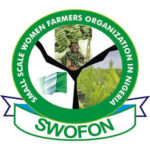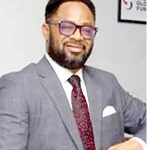Country Director, ActionAid Nigeria, Ene Obi, has urged the Federal Government to immediately lift the suspension on Twitter.
She said the government should rather ban insecurity and other socio-economic challenges confronting the country.
- Twitter ban: Don’t access social media via VPN, APC warns Nigerians
Reps summon Lai Mohammed over Twitter ban
She made the plea in Abuja at the Youth Digital Engagement Project Closeout and Dissemination meeting.
She called on the government to rescind its decision as it had a huge impact on the lives of emerging young entrepreneurs depending on social media for their livelihood.
“It’s also a counter-productive move for a nation seeking to create more jobs and reduce poverty as part of its post-COVID-19 recovery strategy,” Obi said.
She said that the YDE sought to use technology to support the work of young people in holding duty bearers to account through funding from Danish International Development Agency (DANIDA).
She said that in Nigeria, the innovation was pioneered in partnership with Gombe State Youth Parliament, Gombe State; the African Human Development Centre, Akwa Ibom State and the Centre for Information Technology and Development (CITAD) in the FCT.
Obi said that young people were supported and empowered to access information, analyse data, present evidence, and lead their communities in taking action through the use of digital engagement tools through the project.
On findings from the research, Obi said that a key data worthy of highlight for ActionAid Nigeria is the level of awareness of the government’s social investment programmes; specifically, the N-Power and the Conditional Cash Transfer (CCT).
She, however, noted that data shows that awareness is low and the proportion of persons that have benefitted from the programmes is even lower, compared to expectations and experiences of Brazil and other countries with similar policy.
On her part, the representative of the African Human Development Centre (AHDC), Uyo, Akwa Ibom State, Dorcas Festus Bennie said that the state was selected as one of the areas for data collection at the community level.
According to her, the strategic location of the oil resourced state in the southern region of the country exposes the youths to violent extremism.
“Examining how they have been affected by the COVID-19 pandemic therefore provided useful entry points on how the livelihood of young persons can be enhanced. Using Focused Group Discussion and random sampling technique, the data was collected from selected communities within December 2020 to February 2021.
“Based on the population of the state and population per density, a total of 2,386 respondents were identified as the target sample size. “64 6% of the respondents (about 7 out of 10) agreed that COVID-19 had a severe impact on things in their communities. Three main ways through which the COVID-19 pandemic affected the communities were: hunger, poverty, and insecurity,” she said.
Also, a representative of the Centre for Information Technology and Development (CITAD), FCT, Josephine Adokwu, said that the strategic location of the FCT in the north-central region of the country and the dominance of farming activities exposes its inhabitants to variants of shocks.
On his part, the Gombe State Youth Parliament/JONAPwD, Gombe State represented by Mr. Khalid Ahmed, said that findings showed that the COVID-19 pandemic exposed young persons and their families to hunger, poverty, insecurity, and worsened access to health services in the state.
“Most respondents, being farmers, were further exposed to the challenges of climate change as storage of farm harvest could not last due to market closures and poor patronage. The findings from Gombe State data shows that three out of 10 persons with disabilities (PWDs) surveyed expressed that their welfare was severely affected by the COVID-19 pandemic among others,” he said.

 Join Daily Trust WhatsApp Community For Quick Access To News and Happenings Around You.
Join Daily Trust WhatsApp Community For Quick Access To News and Happenings Around You.


